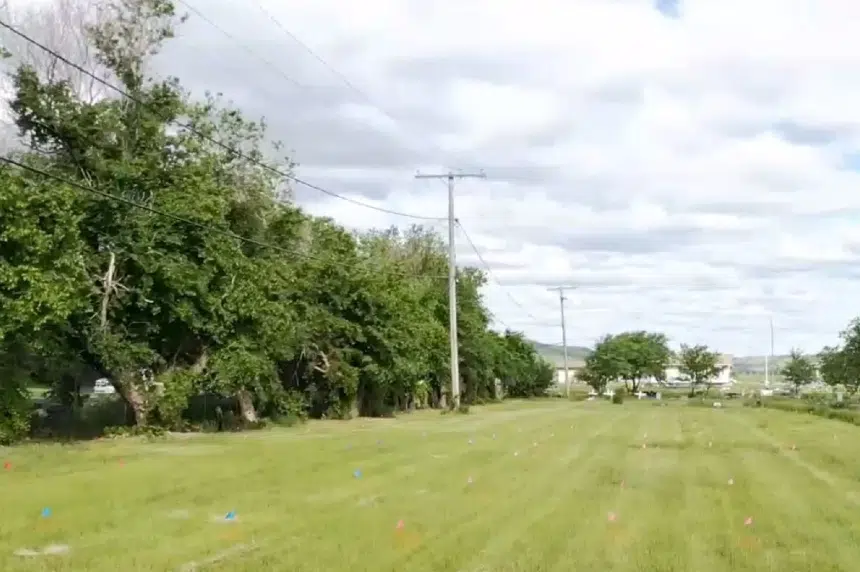Chief Delorme says ‘reset’ needed on reconciliation journey
 |
| Marking the Graves (Cowessess First Nation/Submitted) |
Cowessess First Nation Chief Cadmus Delorme was not expecting the number of unmarked graves on the former Marieval Indian Residential School site to be as high as 751.
The search involved the use of ground-penetrating radar. Flags mark the positions of the once-concealed burial plots.
Delorme told Gormley on Friday morning that when the search began,
technicians brought just 200 flags, running out on the first day.
“We’re like, ‘What are we getting into here? What is the reality of
this?’ And by the end of the week, it got very emotional, very heavy,”
Delorme said.
At first glance, the burial ground appears to be an empty field.
Delorme recalled running through the area as a child. “Just kids being
kids,” he said. But it was known that the graves were beneath their
feet. Oral stories told of their existence.
“We were always told, ‘Walk on the path, walk on the path,’ ” he said.
Delorme said the Oblates arrived in 1886. (Catholic Missionary Oblates of Mary Immaculate) That location was the
gravesite for the Roman Catholic Church, so there were non-Indigenous
people buried there as well. The Marieval Indian Residential School
opened in 1898.
He said the search started June 2 on the east side of the field, going west.
“We were doing two metre by two metre the first day, and then we were
like, ‘Oh, maybe we should do one metre by one metre,’ ” Delorme said.
That’s when the flags were planted and it became apparent there were children buried.
“OK, so one metre by one metre, that means that there’s not full adults here,” Delorme said.
In 1970, the burial ground became a community cemetery, no longer
under control of the Oblates and priests, Delorme said. Grave markers
from that point on are there today.
“So that’s why it’s somewhat challenging to talk about because it is
the community gravesite today. We honour that,” he said. “But there was
almost 80 years where the priests had a say, who did and who didn’t
belong in that gravesite.”
Delorme’s advice for people to play a role in reconciliation is a mental “reset.”
“There is real anger and pain amongst many of my people. And that
anger and pain is there because of the ignorance and the accidental
racism and it just triggers,” he said.
He said Indigenous people are “trying to get out of this dependence
state,” while also focusing on political sovereignty and cultural
rejuvenation.
When asked about those who wish to “cancel” Canada Day, Delorme said
he was “in no capacity to tell anybody what they should or should not
celebrate.”
Delorme said while the fruits of colonialism like the residential
school system, Indian Act, and ’60s Scoop were created in the past,
people of today have inherited the aftermath.
“We must accept the good and what we inherited,” he said.
He challenged people to read the Calls to Action by the Truth and
Reconciliation Commission, share them, and act on any of them that
“click with you.”
“We’ve got some work to do,” he said, “and if we all just grab a
little bit of it, this country would and will be the greatest in the
world.”
**
Orange Shirt Day happens every year on September 30th.
 |
With In |






No comments:
Post a Comment
Please leave a comment.